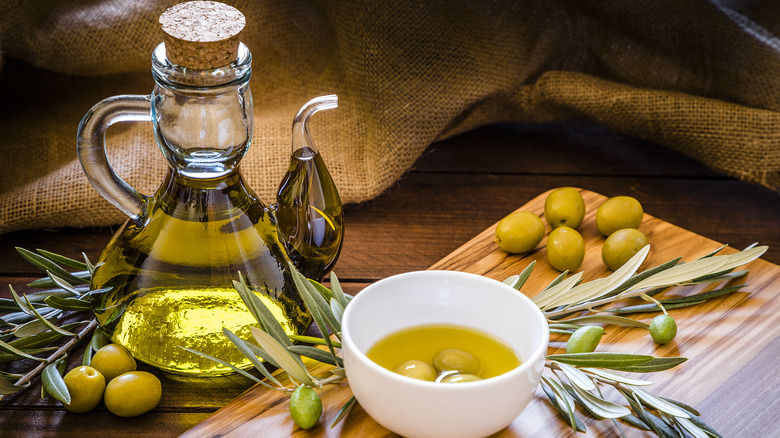Do All Saturated Fats Really Cause Heart Disease?
For more than 50 years, health experts have said to limit your fat intake to reduce the risk of obesity and heart disease. Yet these days, people on keto and other low-carb diets are losing weight while adding butter to their coffee. The American Heart Association says to limit your saturated fat to about 5 or 6% of your daily calories. For a 2,000-calorie diet, that comes to 13 grams of saturated fat. The 2020-2025 Dietary Guidelines for Americans advise limiting saturated fat to less than 10% of your daily calories per day.
However, a 2021 article in Nutrients criticizes these guidelines because they aren't based on scientific evidence. Now, this doesn't mean you should revert to an all-bacon diet. Instead, the study said that when you replace certain fats with refined carbohydrates, you're not really improving your heart health. Some saturated fats — like cheese and yogurt — have nutrients that work together to improve overall health. Besides, if your diet is lower in carbohydrates and higher in saturated fat, you're not stimulating as much insulin.
A 2015 article in BMJ said that the fatty acids found in ghee and milk don't contribute to oxidative stress. These ingredients have been used for years in India, which had some of the lowest incidences of heart disease. Once refined vegetable oils entered the diets in India, heart disease increased. In other words, not all saturated fats are alike.
Different saturated fats affect cholesterol
If you're concerned about heart disease, you probably already know how important it is to reduce your cholesterol to healthy levels. Low-density lipoprotein (LDL) can lead to inflammation that can form plaques in the walls of your arteries. This is known as the "bad" cholesterol. The "good" cholesterol is high-density lipoprotein (HDL), which works to shuttle LDL from the tissues and can reduce inflammation, according to a 2013 article in Circulation.
However, it's worth knowing that not all LDL cholesterol affects heart disease, according to Healthline. There are large LDL particles and small ones, and the large LDL cholesterol particles have a lesser effect on heart disease than smaller ones. Saturated fat increases the larger LDL particles.
Stearic acid comes from animal fat and doesn't significantly impact LDL cholesterol or the risk of heart disease. Palmitic acid is found in both animal and plant fat and increases the large particles of LDL but doesn't affect HDL. You'll find the medium-chain lauric acid in palm kernel oil and coconut oil. Lauric acid raises total cholesterol, but mainly HDL. MCT oils, which are common in keto supplements, consist of medium-chain capric and caprylic acids. These are quickly metabolized in the liver and might lead to weight loss and better insulin sensitivity. Short-chain fatty acids are produced when you eat fiber and fermented foods.
Replace saturated fat with unsaturated fat
Some of the discrepancies in the research on the link between saturated fat and heart disease come from the lumping of all saturated fats into one category, according to a 2018 article in BMJ. After all, dairy products and processed meats have different health outcomes — even though they are both high in saturated fats. Dairy products have calcium, magnesium, and probiotics (in yogurt), whereas processed red meat is high in salt and preservatives. The past research also didn't consider what types of foods replaced saturated fats in the diets. In other words, replacing saturated fats with carbohydrates or protein can have different health outcomes. The study concluded that rather than replacing saturated fats with carbohydrates, it's best to replace them with polyunsaturated fat to reduce your risk of heart disease. A 2019 study in the International Journal of Cardiology also came to the same conclusion and emphasized the need for more research differentiating the effects of specific saturated fats on heart disease.
You'll find polyunsaturated fats in sunflower oil, walnuts, flaxseeds, and fish, according to Harvard School of Public Health. It's also good to include monounsaturated fat sources such as olive oils, avocados, nuts, and seeds.



